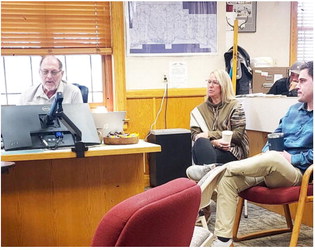Lawsuit Filed Against State For Violating Mandate To Teach Indian Education for All
The American Civil Liberties Union, the ACLU of Montana, and the Native American Rights Fund filed a class-action lawsuit last week on behalf of five Indian nations and 18 individual plaintiffs challenging the state of Montana’s failure to fulfill its constitutional mandate to teach public school students the history and culture of the first peoples of Montana in consultation with local tribes.
“The Montana Legislature passed the Indian Education for All Act in 1999 to ensure every state citizen had the opportunity to gain a basic understanding of local history and information about Native peoples in this region,” said the Confederated Salish and Kootenai Tribes of the Flathead Reservation Chairwoman Shelly R. Fyant . “We need state education administrators to create a system of accountability to ensure every educator teaches this subject in a way that preserves American Indians’ cultural integrity and to ensure the money Montanans voted to invest in Indian Education for All, benefits every student. Now more than ever, this quality education is needed in our state.”
The lawsuit, Yellow Kidney, et al. v. Montana Office of Public Instruction, et al., was filed in Montana District Court in Cascade County by the Assiniboine and Sioux Tribes of the Fort Peck Indian Reservation, Fort Belknap Indian Community, Northern Cheyenne Tribe, Little Shell Tribe, and Confederated Salish and Kootenai Tribes of the Flathead Reservation, and 18 individual student plaintiffs against the agencies and officials responsible for implementing the state’s Indian education provisions: the Montana Office of Public Instruction, the Montana Superintendent of Public Instruction Elsie Arntzen, the Montana Board of Public Education and Montana Board of Public Education Chair Darlene Schottle.
Since 1972 Montana’s Constitution has required that all public school students receive instruction about the first peoples of their state. Implementation of the constitutional provision was specifically addressed in 1999 when the Montana Legislature passed the Indian Education for All Act. At the direction of the Montana Supreme Court, dedicated annual funding by the legislature for the Indian education provisions began in 2007.
“The Indian Education For All Act is important to me and my family because we care about the health of our community,” said Amber Lamb from the Assiniboine and Sioux Tribes of the Fort Peck Indian Reservation. “We want the children in our Public schools to grow together with as much effort put towards understanding one another as possible. It is important to be educated about historical elements that built the culture we are living in today. If we want a cohesive community, it is necessary to present details and truths about the lives of Indigenous people in order to work together to be a strong community. We want our schools to be safe places where all children feel accepted and open to learning together and about each other.”
“Indian Education for All is a resilient tool for Indigenous peoples,” said Angeline Cheek, ACLU-MT Indigenous justice organizer. “But if it is not implemented, the genocide and forced assimilation of Indigenous peoples continues even though we are the original inhabitants and caretakers of this continent.”
“Montana’s Indian Education for All Act is a unique but straightforward requirement that never seems to get implemented fully or correctly,” said NARF Staff Attorney Melody McCoy, who has worked in the area of Indian education for over 30 years. “Fifty years seems long enough for the State to have had to figure this out, but here we are having to go to court again to get it right.”
NARF Staff Attorney Samantha Kelty agrees. “Since Montana made this promise to citizens in 1972, thousands of students have graduated from public schools having never received the innovative education promised,” Kelty said. “The State has an obligation to implement and manage this public mandate and must live up to its responsibility to do so.” “Students in Montana public schools have the unique privilege of having Indian Education for All as a constitutionally- mandated part of their curriculum – but Montana state officials are failing to fulfill this constitutional guarantee,” said Mark Carter, staff attorney with the ACLU’s Racial Justice Program. “We’re going to court to compel state officials to fulfill their constitutional obligation to ensure that all students have access to education about Indigenous peoples’ culture and history.”
To ensure that the state agencies and officials implement and comply with the Constitution and statutes in the future, the class-action lawsuit asks for declaratory and injunctive relief such as the creation and monitoring by the state, in consultation with Montana tribes, of minimum IFEA reporting and compliance standards. The lawsuit, Yellow Kidney, et al. v. Montana Office of Public Instruction, et al, was filed in Montana district court



